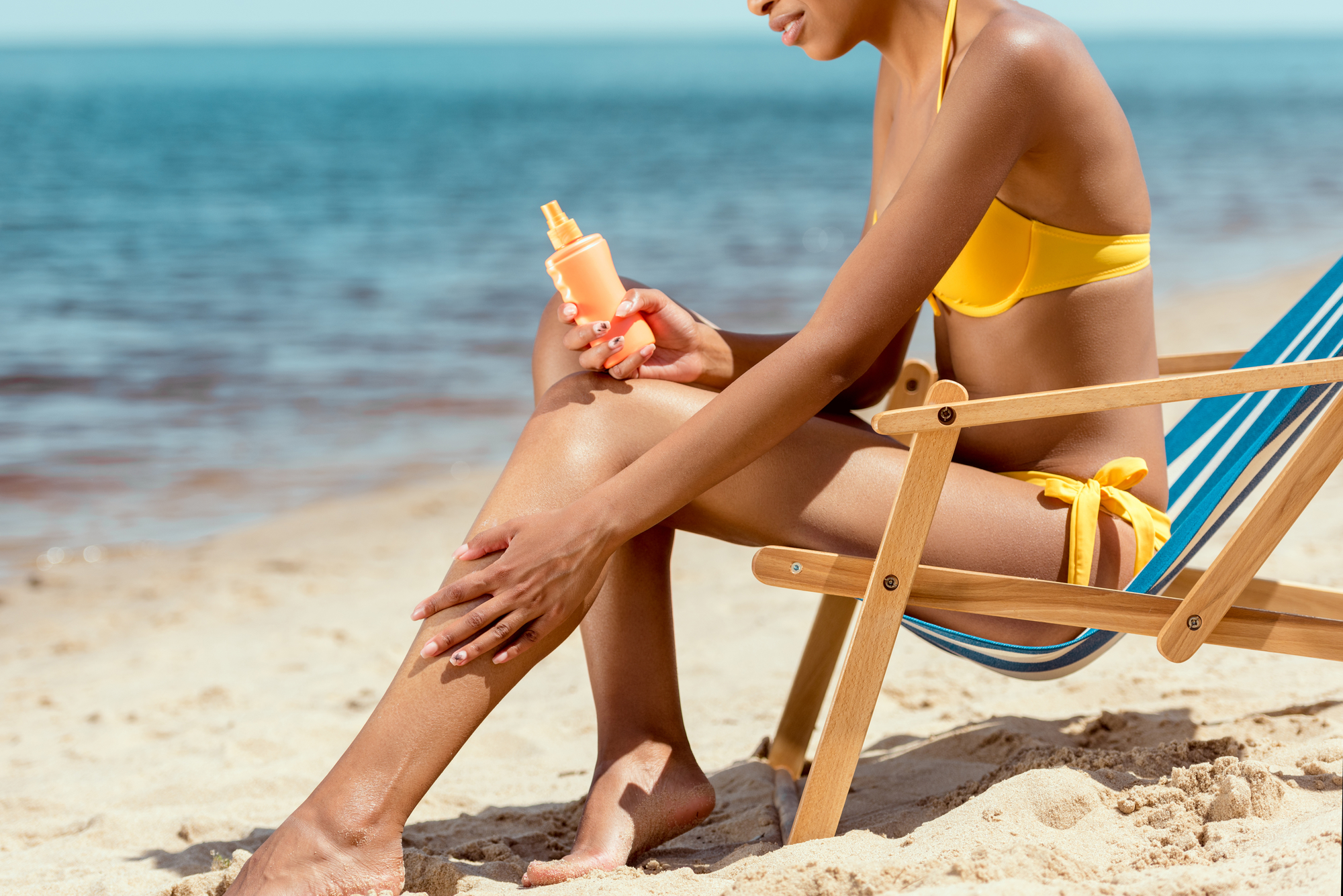

With summer in full swing and societal pressures on full blast, lots of people are looking to get tan. That glow is so desirable, most of us are willing to risk skin cancer to have it just for a little while.
And look—we here at PopSci get it. But we also get that research has conclusively shown that tanning under UV rays, whether at a salon or under the sun, is terrible for your skin and raises your cancer risk. But the only other alternative seems to be sunless tanning lotions—and are those any better?
The short answer is yes, yes they are. If you stop reading now, at least know that pretty much any sunless tanner (with an active ingredient approved by the FDA) is better for you than the sun’s rays.
The long answer: sunless tanners are a better option because the reaction that turns your skin a deeper shade isn’t the same as the one that makes you tan under the sun.
A natural tan happens when we expose ourselves to UV radiation, which damages DNA inside the cells in the outer layer of skin and triggers the body to produce more melanin. Melanin can dissipate UV rays, which means it helps protect skin from further damage. Some people naturally produce more melanin in response to UV exposure—these people tan faster. Skin color also has to do with the amount (and type) of melanin in your melanocytes, the cells that produce the pigment, but it’s a complicated genetic recipe that determines a person’s hue, not just the absolute amount of melanin.
Studies have estimated that melanin can give you the photoprotection equivalent to about SPF 2 to 4. That means you’ve essentially doubled the amount of time you can spend in the sun before you burn, which sounds like a lot until you remember that the absolute minimum SPF lotion recommended is 15. Many dermatologists say at least 30 is a safer bet. So even if you have a tan, you still need sunscreen.
All of this is totally different from how sunless tanning lotions work, though. Most of the products on the market have an active ingredient called dihydroxyacetone, or DHA, which reacts with the amino acids in the top layer of your skin to form melanoidins. Notice this is not melanin. Melanoidins are a different type of pigment that are also formed during the Maillard reaction—they’re why meat turns brown when you cook it. Sunless tanners are browning you like a steak on the grill. You’re welcome for that visual image.
Despite the weird meat association, though, this chemical reaction is totally safe for your skin. The FDA has approved DHA for use topically based on safety data, so applying a lotion should be fine. Tanning booths, where a DHA-containing spray gets misted all over you, are also probably okay overall, but it’s worth noting that the FDA hasn’t approved DHA for inhalation, because that involves contact with sensitive mucous membranes like those in your nose and lungs. To approve that kind of use, the FDA would need data proving it’s safe, and it hasn’t received or gathered that information. For all we know, DHA might be harmless to inhale—but it might not be. If you do go to a tanning booth, make sure you close your eyes and hold your breath, trying your best not to expose your airways to the mist. Remember, though: you have other mucous membranes. Your ears and lips count too, as does your nose (we’re guessing you’re not holding your nose closed, since that would create a funny little tan line on your schnoz). The Mayo Clinic recommends wearing nose plugs and lip balm to try to keep most of the DHA off of those areas.
If you want to avoid inhalation entirely, opt for an at-home tanning kit. These mostly use DHA, but come in lotion or foam form. Assuming that you aren’t smearing the cream inside your nose, you should be fine. Just remember to keep wearing that sunscreen! You don’t get much (if any) sun protection from a fake tan. If you need a recommendation, check out our guide to making an effective, environmentally-friendly choice in the sunscreen aisle. And enjoy the summer!
